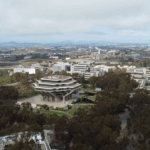Marxist Poetry @ the MLA
Only at the Modern Language Association (MLA) can you find an English professor who will boldly go where no Marxist has ever gone before. It is one thing to think Marx was a brilliant economist, despite more than a century’s worth of evidence to the contrary. It is quite another to think he was a talented poet.
To Crystal Lynn Bartolovich of Syracuse University, Marx was the master of “critical irony.”
Here are a few critically ironic quotes from Karl:
- “The oppressed are allowed once every few years to decide which particular representatives of the oppressing class are to represent and repress them.”
- “The philosophers have only interpreted the world, in various ways: the point, however, is to change it.”
- “Religion is the opiate of the masses.”
- “Sell a man a fish, he eats for a day, teach a man how to fish, you ruin a wonderful business opportunity.”
- “History repeats itself, first as tragedy, second as farce.”
“He thought that the French Revolution was tragic because he believed in revolution,” Bartolovich told the crowd duirng a panel at the MLA’s annual meeting in Chicago. She also liked the way “Marx answers facts with a series of ‘what ifs?’” Well, arguably, many on the Left are still doing this.
Bartolovich chided her co-panelists: “I am actually going to talk about Marx and poetry.” Arguably, she was the most whimsical member of that confab. “If rising consumption was a poet, it would be Richard Bach,” Joshua Clover of the University of California at Davis told an appreciative audience at the MLA.
Bach may be a bit passé since the heyday of Jonathan Livingston Seagull in the 1970s but he may be more profound than Clover and Bartolovich’s hero:
- The bond that links your true family is not one of blood, but of respect and joy in each other’s life.
- Here is the test to find whether your mission on Earth is finished: if you’re alive, it isn’t.
- What the caterpillar calls the end of the world the master calls a butterfly.
Clover was actually mystified that capitalism didn’t end in 2008. It never occurred to him that the free market might be more natural to the human condition than communism.




